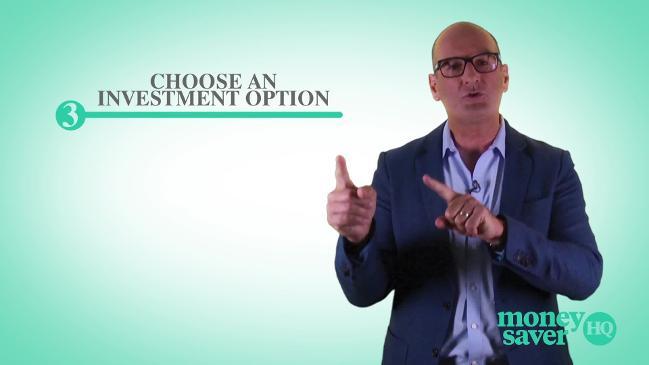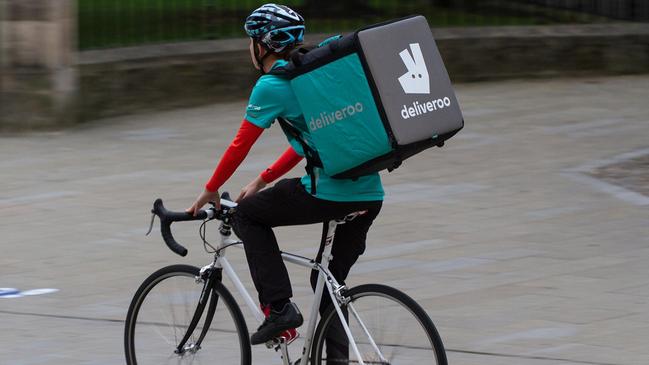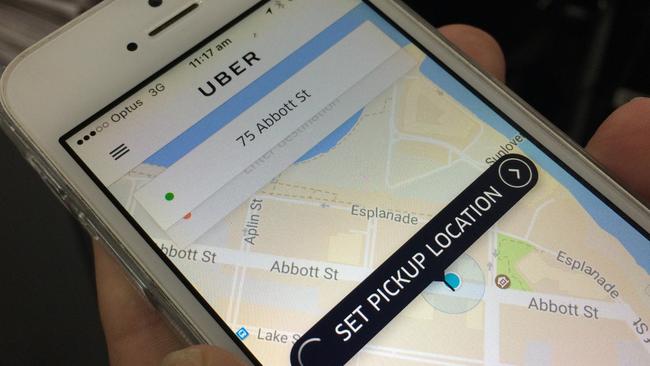Deliveroo to roll out superannuation product to food delivery riders
THE food delivery giant’s new plan was designed to make it look like the good guy. That doesn't seem to have worked.

At Work
Don't miss out on the headlines from At Work. Followed categories will be added to My News.
FOOD delivery service Deliveroo has been accused of delivering a “cruel sham” by spruiking a superannuation solution for riders that doesn’t involve the company actually paying any contributions.
Australian law dictates that all employees should be provided with superannuation by the firm they work for. But as people working in the gig economy, including food delivery riders and Uber drivers, are not classed as employees, they receive no company contributions.
On Friday, the Australian Council for Trade Unions (ACTU) said Deliveroo’s partnership with a superannuation provider was just slick branding and did nothing to help the financial situation of its riders.
“This is not superannuation — it’s a cruel sham that Deliveroo is using to push its superannuation obligations onto its workers,” said ACTU Assistant Secretary Scott Connolly.
“Every employer in Australia has to make super contributions on top of their workers’ salary — why should there be one rule for Deliveroo and one rule for everyone else?”
However, Deliveroo told news.com.au its riders, “overwhelmingly support the flexibility and pay which comes from being self-employed”. The new super product was designed specifically for riders, the company said.

Gig economy companies like Deliveroo, Uber and Foodora, have come under increasing pressure globally to provide more benefits to employees, who largely miss out on super as well as holiday and sick pay.
This is despite many spending the whole week riding with one company’s brand on their back.
The partnership between Deliveroo and superannuation firm Gig Super, which will go live towards the end of the year, will allow riders to flexibly manage contributions via an app, depositing the money from their wages into their super account. That amount can vary depending on the driver’s circumstances.
But Foodora will not make the 9.5 per cent contribution traditional employers have to make, and that will do little to quell the unease many economists have with the gig economy.
Entrepreneur by day, Deliveroo driver by night, there’s two things Ray Willmoth has been missing out on — sleep and superannuation.
At least one of those he might be able to tick off the list with the food delivery company’s superannuation service designed for the hundreds of thousands of Australians working in the gig economy who have absolutely no retirement savings.
He told news.com.au he works 40 hours a week shuttling food from restaurants to hungry mouths. The rest of the time he concentrates on his burgeoning online retailer Fortis Green which sells luxury men’s socks.
“The reason I do Deliveroo is because we’re investing all our money in the business and it’s not paying a wage so Deliveroo allows me to pay the bills.
“It’s hectic but it’s the only way to make it work.”

With no regular wage coming in, Mr Willmoth hasn’t been paying into any super account.
“I understand why people don’t put money into super when they’re self-employed. The gig economy means wages go up and down so it’s tempting to not to do it when you don’t have to.
“Super has been very low down on my list of priorities but I’m 39 now and I have a young child and partner and I need to be responsible.”
Mr Willmoth said a simple app would make it easier to contribute and he hoped to put in the 9.5 per cent minimum that companies add for employees.
Would he like to see Deliveroo pitch into his saving too? “I’d like to think that was the case, that they’d contribute.”
But that won’t be the case with a Deliveroo spokeswoman confirming all contributions into the new super account would come purely from a riders’ earnings with no company top-up.
The latest census showed part time workers now make up a third of the workface. Of the estimated 2.7 million workers who aren’t contributing to their super, 100,000 of those are estimated to be working in the gig economy.
That keeps their company costs down but it’s going to cause issues down the track, said Associate Professor Sarah Kaine, an expert in the gig economy at University of Technology Business School.
“It’s a huge problem we’re not dealing with. It’s going to come back and bite us as people who have relied on freelance work, gig work, come to retire. Who will have to bear the burden of people without enough superannuation?” she said on the ABC’s Four Corners last week.

Nevertheless, Deliveroo’s Australian Manager, Levi Aron, said the new super product was a step in the right direction given 75 per cent of self-employed workers had precisely zilch in the kitty for their golden years.
“When its comes to superannuation, gig economy riders haven’t been provided a sensible product for their working life until now. Therefore it is essential to us to help our Deliveroo riders get closer to their personal and financial goals,” Mr Aron said.
Gig Super co-founder Peter Stanhope said “many Australians lacked education about superannuation,” and traditional plans were not designed for people to make their own ad hoc and varied contributions.
“We’re excited to work with Deliveroo to both educate their riders about superannuation and also get the input from their riders to make sure we are designing the product self-employed Australians need.”

In the UK, ride sharing service Uber has made changes to the benefits it offers people working with the firm after coming under intense pressure.
In 2016, an employment tribunal found its drivers were not self-employed after all but should be classified as “workers”, which would mean access to a minimum wage, sick and holiday pay.
The judges said the level of control Uber asserted over its drivers meant it was bizarre to suggest they weren’t freelancing in the accepted sense.
“The notion that Uber in London is a mosaic of 30,000 small businesses linked by a common ‘platform’ is to our minds faintly ridiculous,” the Guardian reported.
The US firm appealed the ruling claiming that taxi drivers had, in the main, always been self-employed. But, late last year that appeal was thrown out.
The company now offers all its drivers sick pay for a weekly contribution of GBP2.
Originally published as Deliveroo to roll out superannuation product to food delivery riders



